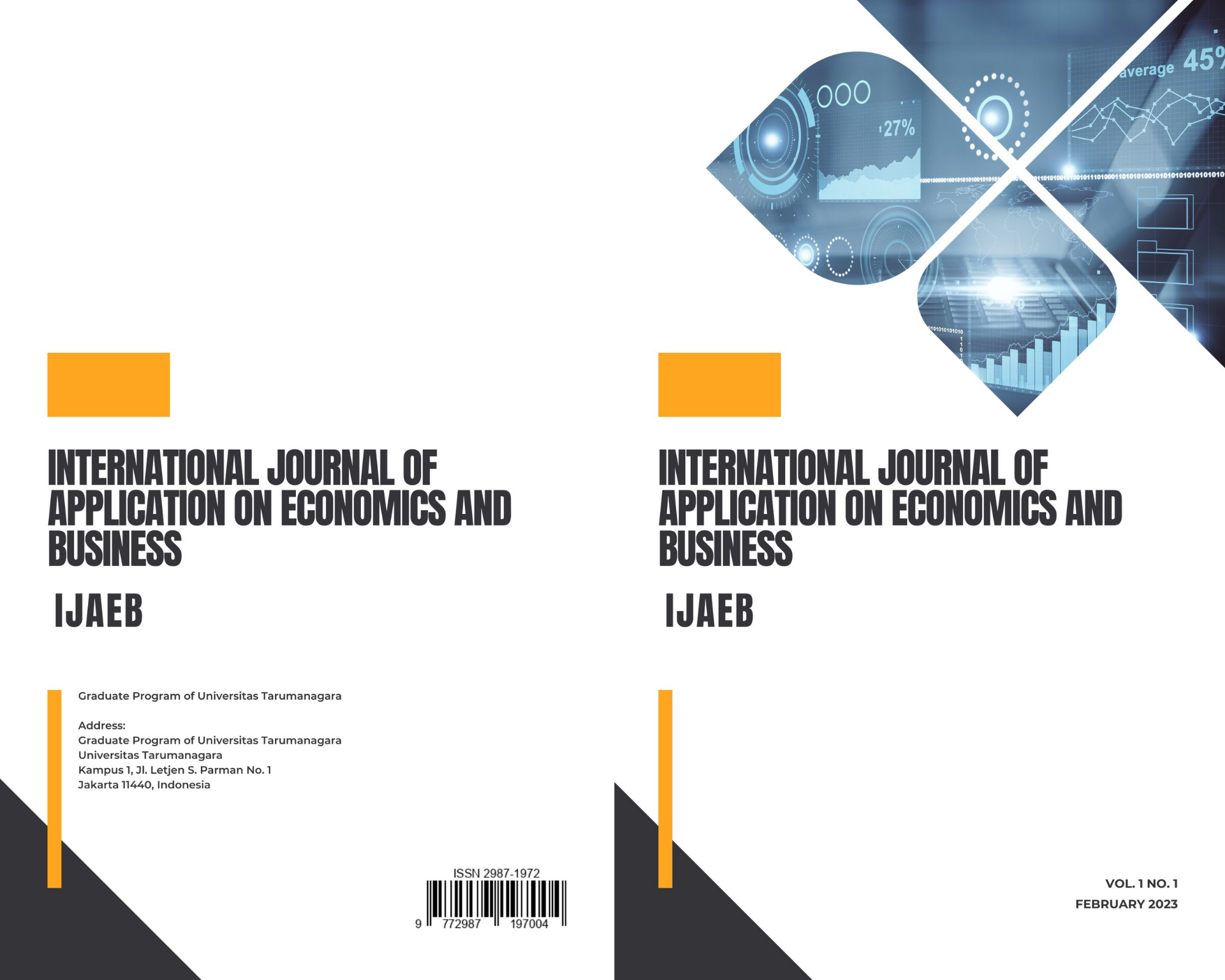The Influence of Financial Knowledge, Financial Literacy, and Financial Technology on Financial Management Behavior Among Young Adults
Main Article Content
Abstract
The purpose of this research is to analyze the effect of financial knowledge, financial literacy, and financial technology on financial management behavior of young adults in the city of Jakarta. The sample selection technique in this study was purposive sampling. The sample used in this study is 150 respondents, obtained through the distribution of online questionnaires. This research uses Smart PLS software version 3.2.9 to process the data. The result of the analysis shows that financial knowledge, financial literacy, and financial technology have a significant and positive effect on financial management behavior on young adults in the city of Jakarta.
Article Details
Section

This work is licensed under a Creative Commons Attribution-NonCommercial-ShareAlike 4.0 International License.
This journal provides immediate open access to its content on the principle that making research freely available to the public supports a greater global exchange of knowledge.
IJAEB by Graduate Program of Universitas Tarumanagara is licensed under a Creative Commons Attribution-NonCommercial-ShareAlike 4.0 International License.. Permissions beyond the scope of this license may be available at https://journal.untar.ac.id/index.php/ijaeb
References
IDN Media, Indonesia Millenial Report 2020, IDN Research Institute, 2020, [Online], Available: https://cdn.idntimes.com/content-documents/Indonesia-millennial-report-2020-by-IDN-Research-Institute.pdf.
N.T.N. Mien, T.P. Thao, Factors Affecting Personal Financial Management Behaviors: Evidence from Vietnam, Proceedings of the Second Asia-Pacific Conference on Global Business, Economics, Finance and Social Sciences (AP15Vietnam Conference), 2015.
GoBear Indonesia, GoBear Financial Health Index, 2019, [Online], Available: https://www.cnnindonesia.com/ekonomi/20191031125 53-78-444466/studi-orang-berusia-35-tahun-belum miliki-rencana-keuangan
Otoritas Jasa Keuangan, Survei Nasional Literasi dan Inklusi Keuangan, 2019, [Online], Available: https://www.ojk.go.id/id/berita-dan-kegiatan/publikasi/Pages/Survei-Nasional-Literasi-dan-Inklusi-Keuangan-2019.aspx.
Asosiasi Penyelenggara Jasa Internet Indonesia, Survei Internet APJII, 2019-2020 (Q2), [Online], Available: https://apjii.or.id/survei.
H. Chen, R.P. Volpe, An analysis of personal Financial Literacy among College Students, Financial Services Review. vol. 7, no. 2, 1998, pp. 107-128. DOI: https://doi.org/10.1016/S1057-0810(99)80006-7
Swiecka et al, Financial Literacy and Financial Education: Theory and Survey, Berlin: Walter de Gruyter Inc, 2019.
N.A. Kholilah, Rr. Iramani, Studi Financial Management Behavior pada Masyarakat Surabaya, Journal of Business and Banking, vol. 3, no. 1, 2013, pp. 69-80. DOI: http://dx.doi.org/10.14414/jbb.v3i1.255
Gianni. Nicolini, Financial Literacy in Europe: Assessment Methodologies and Evidence from European Countries, New York: Routledge, 2019.
OECD, PISA 2015 Results (Volume IV): Students’ Financial Literacy, Paris: OECD Publishing, 2017.
C. Herdinata, F.D. Pranatasari, Aplikasi Literasi Keuangan bagi pelaku bisnis, Yogyakarta: Deepublish Publisher, 2020.
Nader. Naifar, Impact of Financial Technology (Fintech) on Islamic Finance and Financial Stability. United States of America: IGI Global, 2020.
Rumondang et al, Fintech: Inovasi Sistem Keuangan di Era Digital, Medan: Yayasan Kita Menulis, 2019.
Ginantra et al, Teknologi Finansial: Sistem Finansial Berbasis Teknologi di Era Digital, Medan: Yayasan Kita Menulis, 2020.
H.K. Baker, G. Filbeck, V. Ricciardi, Financial Behavior: Players, Services, Product and Markets, United States of America: Oxford University Press, 2017.
M.H. Putri, A.S. Pamungkas, Pengaruh Financial Knowledge, Locus of Control dan Financial Self Efficacy Terhadap Financial Behavio, Jurnal Manajerial dan Kewirausahaan, vol. 1, no. 4, 2019, pp. 890-889.
V.G. Perry, M.D. Morris, Who is in control? The Role of Self Perception, Knowledge, and Income in Explaining Consumer Financial Behavior, The Journal of Consumer Affairs, vol. 39, no. 2, 2005, pp. 299-313. DOI: https://doi.org/10.1111/j.1745-6606.2005.00016.x
A. Z. Arifin, The Influence of Financial Knowledge, Control and Income on Individual Financial Behavior, European Research Studies Journal, vol. 20, no. 3, 2017, pp. 635-648.
V.T. Nguyen, M.D. Doan, The correlation between Financial Literacy and Personal Saving Behavior in Vietnam, Asian Economic and Financial Review, vol. 10, no. 6, 2020, pp. 590-603. DOI: https://doi.org/10.18488/journal.aefr.2020.106.590.603
M.R.D. Prihartono, N. Asandimitra, Analysis Factors Influencing Financial Management Behaviour, International Journal of Academic Research in Business and Social Sciences, vol. 8, no. 8, 2018, pp. 308–326.
Herawati et al, Factors That Influence Financial Behavior Among Accounting Students in Bali, International Journal of Business Administration, vol. 9, no. 3, 2018, pp. 30-38. DOI: https://doi.org/10.5430/ijba.v9n3p30
M.N. Farida, Y. Soesatyo, T.S. Aji, Influence of Financial Literacy and Use of Financial Technology on Financial Satisfaction through Financial Behavior, International Journal of Education & Literacy Studies, vol. 9, no. 1, 2020, pp. 86-95. DOI: http://dx.doi.org/10.7575/aiac.ijels.v.9n.1p.86
Humaidi et al, The Effect of Financial Technology, Demography, and Financial Literacy on Financial Management Behavior of Productive Age in Surabaya, Indonesia, International Journal of Advances in Scientific Research and Engineering, vol. 6, no. 1, 2020, pp. 77-81. DOI: https://doi.org/10.31695/IJASRE.2020.33604

